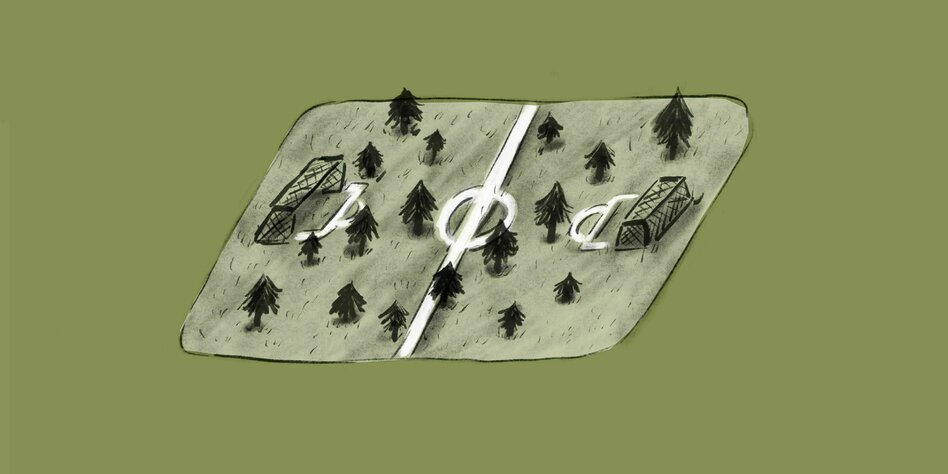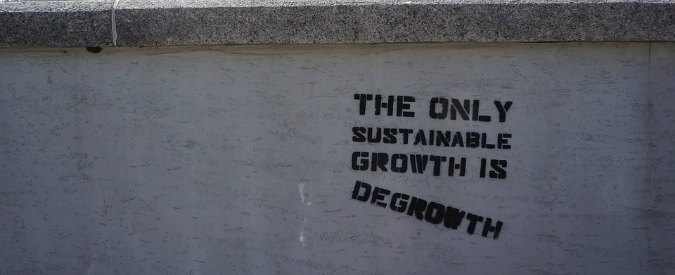Deutschlandfunk - Forschung Aktuell - Ökonomie versus #Nachhaltigkeit: „Wachstum an sich ist kein soziales Ziel“
11.09.2020
Transskript der Sendung:
"Wachstum an sich ist kein soziales Ziel, aber #Wachstum an sich ist auch nicht unbedingt schlecht. Ich finde es ganz wichtig, sich nicht an dieser Frage aufzuhängen, sondern zu fragen: welche Veränderungen sind denn überhaupt notwendig? Als erstes weisen wir darauf hin, dass Wirtschaftswachstum insbesondere dann sinnvoll und notwendig ist, wenn es zum Ziel hat, menschliche Grundbedürfnisse zu befördern. Das heißt, Einschnitte im Konsum sind vollem dann gerechfertigt, wenn es um Aspekte geht, die keine Grundbedürfnisse betreffen.
Man will ja nicht das Gesundheitssystem oder den Bildungssektor oder den Kulturbereich schrumpfen, aber man will natürlich manche energieintensive Branchen und vor allem natürlich die Nutzung fossiler Rohstoffe schrumpfen."
Das beste Instrument dafür sei nach wie vor ein Preis für CO2-Emissionen. Und das würde auch das #Bruttoinlandsprodukt (kurz #BIP) verändern, meint Jakob. Vielleicht quantitativ, vor allem aber qualitativ.
"Wenn man jetzt von dem BIP zum Beispiel die CO2-Emissionen mit einem gewisssen Preis abziehen würde, dann würde ja ein realistischeres Bild sozusagen entstehen, was wirklich an gesellschaftlichem Wert geschaffen wird. Dann könnte zum Beispiel dieser berichtigte BIP-Indikator allein schon dadurch wachsen, dass man die Umweltzerstörung vermindert. Also dass man nicht mehr konsumiert, sondern dass man einfach weniger abzieht sozusagen und durch weniger #CO2-Emissionen insgesamt einen höheren Wert für die Gemeinschaft, für die Lebensqualität hat."
Eng verknüpft mit der Frage ob wirtschaftliches Wachstum wünschenswert und möglich ist, ist die Rolle, die neuen Technologien eingeräumt wird. Neoklassische Ökonomen etwa gehen davon aus, dass neues Wissen den #Ressourcenverbrauch und die Emissionen drastisch senken kann. #Degrowth Vertreter hingegen fordern gesellschaftliche Veränderungen und halten eine drastische Senkung des Konsums für unvermeidlich. Michael Jacob gibt beiden Recht.
"Das ist kein Entweder-Oder, sondern das ist gerade der wichtige Punkt, beides zu benutzen. Das heißt, man kann jetzt nicht getrennt technologische Entwicklung und Verhaltensänderungen sich anschauen, sondern man muss eigentlich überlegen, wie kann das beides zusammen spielen. Wie kann eigentlich eine Verhaltensänderung irgendwelche Technologien weiter voran treiben? Welche Technologien können zu neuen gesellschaftlichen Wertvorstellungen passen?"
Man müsse die Stärken und Instrumente beider wirtschaftswissenschaftlicher Richtungen vereinen und nutzen, meint Jacob, und erklärt das am Beispiel der Mobilität.
"Man kann zum Beispiel am einfachsten sagen, bauen wir einfach effizientere Verbrennungsmotoren, gleichzeitig fragt man sich aber auch: was ist es denn, das man will. Das ist Mobilität, die kann man auch ganz anders denken. Kann öffentlichen Nahverkehr machen, man kann Städte anders bauen. Oder auf der höchsten Ebene sogar denken: ok, #Mobilität ist eine Frage von Lebensstil, und man auch ganz anders leben und sagen, ok, ich muss gar nicht die ganze Zeit durch die Gegend #reisen. Ich bleib mehr zu Hause und passe mich eher an meine lokale Umgebung an."
mp3:
https://ondemand-mp3.dradio.de/file/dradio/2020/09/11/oekonomie_versus_nachhaltigkeit_wachstum_an_sich_ist_kein_dlf_20200911_1640_34b4ae9c.mp3
#degrowth #MichaelJacob #ForschungAktuell








